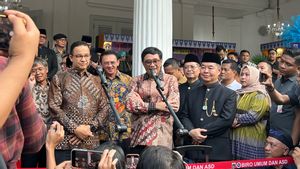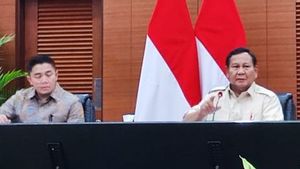YOGYAKARTA In simple terms, outsourcing is a substitute for honorary workers.
The outsourced worker method has begun to be implemented in Indonesia. Outsourced personnel is the answer for various companies that require many workers.
The outsourcing system is indeed relatively new in Indonesia, so many people do not understand its understanding. So what is outsourcing workforce?
Outsourced workers who are not directly tied to the company where they work, but he is in contact with a third-party company.
The definition of outsourcing is explained in the Law on Manpower or Law Number 13 of 2003.
It is said that outsourcing is the delivery of some of the work from one company to a sub-con company. There are two mechanisms for delivery, namely through work chartering agreements or the provision of worker services.
Thus it can be concluded that outsourced employees are employees who are not part of the user company, but workers who are employed by other companies to work in other companies.
Outsourced labor supply companies will help user companies to complete certain jobs.
In the Law on Manpower Article 64 it is said that outsourced labor can be used to complete some user companies based on written agreements.
In addition, it should be noted that outsourced worker provider companies must also be legal entities and have permission from the employment agency.
As mentioned earlier, outsourced workers are not related to user companies, but are related to labor supply companies that are legal entities.
Later outsourced workers will work for other companies with a contract system.
There are two contract systems, namely the Specific Time Work Agreement (PKWT) and the Indeterminate Time Work Agreement (PKWTT).
The work area of outsourced employees is also regulated through Law no. 13 of 2003 concerning Manpower. One of the rules is that employee work must be carried out separately from the main activities of the company where they work.
"Workers/laborers from workers/laborers service providers may not be used by employers to carry out basic activities or activities that are directly related to the production process, except for supporting service activities or activities that are not directly related to the production process." read Article 66 paragraph (1) of Law No. 13 of 2003.
The rules related to outsourcing then experienced adjustments and were contained in Law no. 11 of 2020 in conjunction with Government Regulation No. 35 of 2021.
It is said in it that outsourcing is no longer divided into job supply or Labor Service Provision (labour supply). Workers are no longer limited to supporting work.
There are two kinds of advantages related to outsourced power, namely in terms of the company and in terms of workers themselves.
From the company side, excess outsourcing is as follows.
Meanwhile, the advantages of outsourced systems for employees are as follows.
Outsourced Energy Lack
Outsourced power shortages also consist of two perspectives, namely from the company side and from the employee side directly.
The lack of outsourcing in terms of the company is as follows:
The lack of outsourced systems from the employee side is as follows.
Several companies have handed over work outside the core of the company to outsourced workers. The most common example of outsourced personnel employed by the company is the following.
Outsourced power system is interesting to discuss. To get other interesting information, visit VOI.ID.
The English, Chinese, Japanese, Arabic, and French versions are automatically generated by the AI. So there may still be inaccuracies in translating, please always see Indonesian as our main language. (system supported by DigitalSiber.id)













